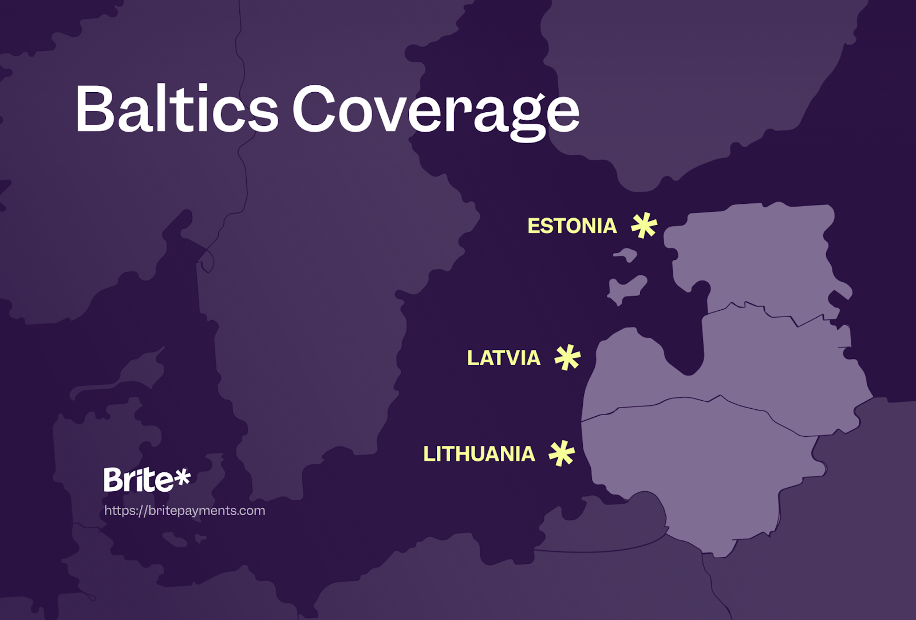Latest News
Bank of Lithuania’s Response to the Covid-19 Crisis: Responsible Action or Over-Regulation?

The Covid- 19 Pandemic has created many novel situations that are unlikely to disappear in the near future. Like in the majority of novel post- apocalyptic scenarios, the uncertainty of the a new world order, especially in the financial sector, is always looming upon not only the governmental sector, but also on the private sector, which leads to many legal lacunas.
Within the EU financial sector, it is still uncertain whether the crisis has entered into its second act, or if it is still at the overture level.
The Bank of Lithuania, for example, has demonstrated great resilience with the initial response to the Crisis, that was remarkable in comparison to the initial response of ESMA. The Bank has issued six points of reference to the financial institutions which are regulated under the Bank which are crucial for each Electronic Money Institution’s (hereinafter- EMI) reporting duties and financial duties.
For instance, part of these requirements are in direct correlation to the Market Abuse Regulation, 5 AMLD, PSD2, and MiFID II. When discussing the Market Abuse Regulation, the Bank has issued a notice that processes and business decisions issued within the quarantine time are considered inside information, and should be disclosed under the appropriate framework.
Bank of Lithuania is also aware that regulated entities, especially EMIs and Payment Institutions (hereinafter-PI) which have not been working from their usual headquarters, but on a remote basis, still have to continue their financial and regulatory report as usual. Documents should be sent on a password controlled basis, and physical documentation should not contain confidential or sensitive information.
In regards to trading activity and trading in a regulated environment, the Bank has announced its intentions for allocating means for legal enforcement for proper functioning of the market in Lithuania. By this, the Bank has decided to examine requests for suspended trading only after receiving well- reasoned submissions, which are objective, reasoned and legally justified.
This is not the first time that the objective, reasoned and legally justified criteria has been raised in a European context. The criteria is remarkably similar to the Subsidiarity and Proportionality principle of EU jurisprudence, which has been discussed countlessly in the Treaty of Maastricht, the Single European Act (SEA), and in T29/92, which established that the subsidiarity principle does not constitute sufficient grounds to tackle the legality of an EU legal act, especially in trade aspects between Member States and Association Agreement Countries.
In the financial services realm, this is one of the few times that this has occurred. Implementing the Subsidiarity and Proportionality Criteria in the Lithuanian context, has surpassed the EU Agency level (ESMA) and has been directly implemented by the Lithuanian Regulator.
It may seem to some that this leap is the first sign of over-regulation in Member States, which tend to over-regulate in times of crisis, yet this measure can also be deemed as responsible action. The fact that the Bank of Lithuania has managed to implement the measure in a short time frame, with minor and almost non-existent instructions from ESMA, proves once again that in cases of financial services, mutual and not exclusive competence is the golden route for financial institutions.
EMIs and crypto exchanges that have been licensed in Estonia in comparison, which have lately been scrutinized by regulatory enhanced enforcement, have not received any formal notification in regards to the Covid-19 crisis, and have not received an extension for financial and regulatory reporting, bearing in mind the July 1st deadline that is looming on the entire crypto industry in Estonia.
EMIs in Lithuania on the other hand, have received specific instructions on their financial and regulatory reporting, and the widely anticipated API open banking system will be presented during the Payment Council later this year.
Be that as it may, EMIs that are licensed in Lithuania need to bear in mind that additional enhanced procedures are anticipated from the Bank, and they need to prepare themselves for the regulatory whirlwind that will hit the compliance and operational desks within the foreseeable future.
About the author: Ella Rosenberg
 EU Law Regulatory Consultant at Porat Group and CEO of the Israel-EU Chamber of Commerce and Industry. She primarily deals with high risk industries in Israel and Europe. Ella holds an LLB in EU Law from the European Law School, Maastricht University and an LLM in Commercial and Company Law from Erasmus School of Law, Erasmus University Rotterdam. Ella consults on AML in the crypto currency industry, Blockchain, AI, drone regulation, EU firearms regulatory framework, Art industry, financial arbitration and tokenization of maritime logistics. She also focuses on Foreign Trade Agreements of the EU and Israel, TRIPS and GATT agreements, WTO Law and EU Legal Policy. Ella serves as a member of Europe Forum in Israel, and actively consults the public and governmental sector in Israel on the EU Regulatory Framework.
EU Law Regulatory Consultant at Porat Group and CEO of the Israel-EU Chamber of Commerce and Industry. She primarily deals with high risk industries in Israel and Europe. Ella holds an LLB in EU Law from the European Law School, Maastricht University and an LLM in Commercial and Company Law from Erasmus School of Law, Erasmus University Rotterdam. Ella consults on AML in the crypto currency industry, Blockchain, AI, drone regulation, EU firearms regulatory framework, Art industry, financial arbitration and tokenization of maritime logistics. She also focuses on Foreign Trade Agreements of the EU and Israel, TRIPS and GATT agreements, WTO Law and EU Legal Policy. Ella serves as a member of Europe Forum in Israel, and actively consults the public and governmental sector in Israel on the EU Regulatory Framework.
Latest News
Latvian Fintech inGain Raises €650,000 for No-Code SaaS Loan Management System
The post Latvian Fintech inGain Raises €650,000 for No-Code SaaS Loan Management System appeared first on HIPTHER Alerts.
Latest News
Gotion High-tech’s operating profit up 391% in 2023, nearly RMB 2.8 billion invested in R&D for the year
HEFEI, China, April 20, 2024 /PRNewswire/ — On the evening of 19 April, Gotion High-tech (002074) released its 2023 annual report. The company achieved operating revenue of RMB 31.605 billion, an increase of 37.11% YoY; operating profit of RMB 975 million, an increase of 390.92% YoY; and net profit attributable to the owner of the listed company of RMB 939 million, an increase of 201.28% YoY. The company’s net cash flows from operating activities was RMB 2.419 billion, up 201.86% YoY.
On the same day, Gotion High-tech also released its 2024 quarterly report. The company achieved revenue of RMB 7.508 billion, a YoY increase of 4.61%, and net profit attributable to the owner of the listed company after deducting non-recurring profits and losses increased by 195.26% YoY.
The report shows that Gotion High-tech’s product delivery exceeded 40GWh in 2023, with a YoY growth of more than 40%, and sales revenue including tax increased by more than 50% YoY under the situation of continuous decline in battery prices. Power battery sales revenue of RMB 23.051 billion, a YoY growth of 24.72%. Energy storage business revenue was RMB 6.932 billion, up 97.61% YoY, with the revenue share rising to 21.93%.
Gotion High-tech adheres to innovation drive, increases R&D investment, and accelerates product technology iteration. In 2023, the company’s R&D investment reached RMB 2.768 billion, a YoY increase of 14.57%. The company’s Unified Cell, 4695 cylinder cell, semi-solid punch cell and third-generation battery cell products such as L300, M600 and N300 have been recognized by the market for their excellent performance in terms of safety, energy density, power performance and service life. Among them, Gotion has been designated by Volkswagen Unified Cell globally; the energy density of the in-house developed Astroinno battery pack reaches 190Wh/kg.
In addition, Gotion High-tech continues to deepen the strategic layout of globalization. With four Pack plants in Germany, Indonesia, Thailand and Silicon Valley of the U.S. launching their products, and production bases such as in Vietnam, Chicago of the U.S., Michigan of the U.S., Slovakia, Argentina, and Indonesia progressing step by step, Gotion High-tech initially formed the layout of ten overseas bases covering materials, cells, and Pack, and realized localization of production and R&D. In 2023, Gotion achieved overseas revenue of RMB 6.428 billion, a YoY growth of 115.69%.
View original content:https://www.prnewswire.co.uk/news-releases/gotion-high-techs-operating-profit-up-391-in-2023–nearly-rmb-2-8-billion-invested-in-rd-for-the-year-302122659.html

Latest News
Fintech Powerhouse CRED Receives In-Principle Approval for Payment Aggregator License
The post Fintech Powerhouse CRED Receives In-Principle Approval for Payment Aggregator License appeared first on HIPTHER Alerts.
-
Latest News7 days ago
“The Hainan FTP and Me”: Looking at Hainan’s Transformations
-
Latest News5 days ago
Millions of people unite around doing good on the 18th International Good Deeds Day held yesterday worldwide
-
Latest News5 days ago
Banxso Acquires Australian ASIC License, Enhancing Its Global Trading Operations
-
Latest News3 days ago
BMO Announces Election of Board of Directors
-
Latest News5 days ago
135th Canton Fair Launches a Showcase of Innovative Products of New Collection to Lead Global Market Trends
-
Latest News4 days ago
HaloWallet Rebrands To Halo: Integrating SocialFi & AI To Revolutionize Social Influence Monetization
-
Latest News5 days ago
BII and FMO back BECIS with joint US$50 million financing facility supporting commercial and industrial renewables sector in South-East Asia
-
Latest News4 days ago
Former PayPal chief Dan Schulman joins Valor Capital as managing partner




